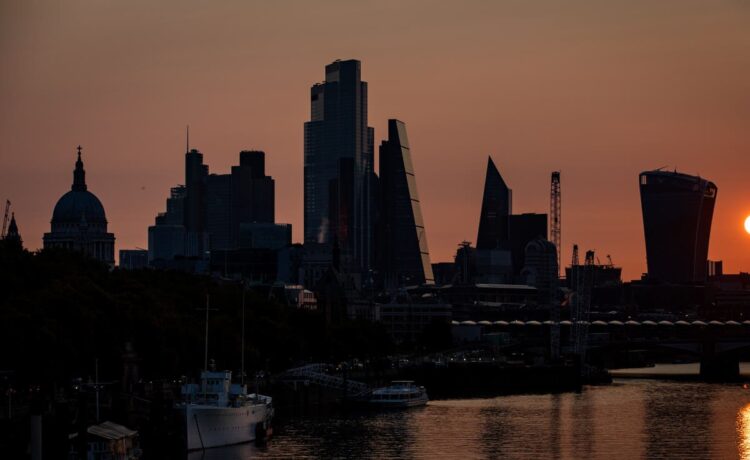Your support helps us to tell the story
This election is still a dead heat, according to most polls. In a fight with such wafer-thin margins, we need reporters on the ground talking to the people Trump and Harris are courting. Your support allows us to keep sending journalists to the story.
The Independent is trusted by 27 million Americans from across the entire political spectrum every month. Unlike many other quality news outlets, we choose not to lock you out of our reporting and analysis with paywalls. But quality journalism must still be paid for.
Help us keep bring these critical stories to light. Your support makes all the difference.
Global equity markets climbed higher at the end of the week as the FTSE was aided by the UK economy’s return to growth.
Fresh figures from the Office for National Statistic (ONS) showed the UK GDP grew by 0.2% in August, after stagnating in the previous two months.
It came after further growth in the key services sector as well as a recovery in construction as more projects got under way.
The FTSE 100 finished 15.92 points, or 0.19%, higher to end the day at 8,253.65.
Global stock indices, except those in China which hope for another stimulus package, ended the week on a higher note
Axel Rudolph, senior technical analyst at IG
Across the Channel, the other major European markets were supported by easing inflation data from Germany, which slowed to its lowest level for three years.
The Cac 40 ended 0.48% higher for the day and the Dax index was up 0.75%.
Stateside, the Dow Jones had a strong opening amid a positive session for financial stocks, with notable rises for JP Morgan and Wells Fargo.
Axel Rudolph, senior technical analyst at IG, said: “Global stock indices, except those in China which hope for another stimulus package, ended the week on a higher note.
“A rebound in the UK economy, unexpected drop in Canada unemployment, slowing US producer price inflation and JP Morgan Q3 earnings beating estimates gave stocks on both sides of the Atlantic a boost.”
Meanwhile, sterling moved slightly higher as some economists suggested the stronger GDP reading meant a Bank of England interest rate cut is not a certainty at next month’s meeting.
The pound was up 0.12% at 1.307 US dollars and up 0.1% at 1.194 euros.
In company news, BP was a touch lower after it warned it expects a slump in refining margins to take a 400 million dollar (£306 million) to 600 million dollar (£459 million) chunk out of its third-quarter profit.
The oil major said it also expects oil trading to be “weak” for the three months to the end of September.
The update, which was similar to one from Shell earlier in the week, caused shares to dip 0.34% to 409.45p.
Sainsbury’s was the day’s most significant faller after its largest shareholder, the Qatar Investment Authority (QIA), sold almost a third of its shares.
Shares in the supermarket group fell 5.9% to 271p after the QIA sold its shares for 280p per share, in a move making it £306 million and brought its stake below 10%.
Over-50s specialist Saga made strong gains after it said it is in “exclusive negotiations” with Ageas over a tie-up for its insurance arm and has agreed to sell its underwriting business to the Belgian firm. Shares moved 9.1% higher to 136.4p as a result.
Elsewhere, the price of oil lost ground on Friday but was still higher for the week because of potential disruption to supply from heightened tensions in the Middle East.
A barrel of Brent crude oil was down by 0.6% to 78.90 dollars (£60.37) as markets were closing in London.
The biggest risers on the FTSE 100 were Endeavour Mining, up 44p to 1,745p, DS Smith, up 11.2p to 468p, Vistry, up 22p to 923p, Mondi, up 33p to 1,467.5p, and Taylor Wimpey, up 3.3p to 155.25p.
The biggest fallers on the FTSE 100 were Sainsbury’s, down 17p to 271p, Prudential, down 11.8p to 676.4p, GSK, down 25p to 1,480p, Melrose Industries, down 6.4p to 428.6p, and Vodafone, down 0.86p to 73.8p.













